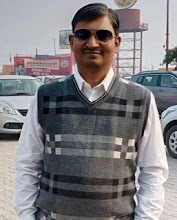CLASS
8 -HISTORY
HOW, WHEN AND WHERE
(LESSON NOTES)
___________________________________________________________
v INTRODUCTION
Ø This chapter will
discuss that why we study history and why it is so important to remember the
dates and the happenings of past of the different parts of the world. We also
see the sources to know about modern history of India during colonial period.
v HISTORY
Ø History refers about changes that
occur over time. It takes us to the past to know about the society, places,
games, songs economy of particular place over the time.
v HOW IMPORTANT ARE DATES
Ø “History is certainly about changes
that occur over time”. So in earlier time historian focus on the dates to study
history. They believed that-
Ø History is synonymous with dates.
Ø We compare the past with present so
there is the need of dates.
Ø We study dates to find out the
sequence of events and significance of events.
v HISTORY IS NOT ONLY ABOUT DATES-
Ø History was associated with dates so
it was called as boring subject. Though in history dates are important but
history is not only about the dates as
§ Many incidents in history are occurred
during the course of time.
§ It’s not happen on a fix date. For
example we don’t know on which day a child start to speak.
§ So in present time historian did not
focus only on memorizing the dates but they compare the earlier time with the
present time.
v WHICH DATES ARE IMPORTANT
Ø Selection of date depends on the story
of past.
Ø To focus on a particular set of events
dates are important.
Ø By studying the dates reasons and
consequences of events are understood in better way.
Ø For example-Time periods of Governor
General during British India.
v PERIODISATION OF INDIAN HISTORY
Ø India history was divided on two
concept
Ø
Concept of Britishers-
§
A British writer James Mill wrote a book A History of British India
in 1817 in which he divided Indian history into three periods:
·
Hindu,
·
Muslim
·
British.
§
But this
concept have some problem as
·
It focuses
only on the religion of rulers and ignore the religion of people.
·
It also shows
that only British rules, culture and laws could make Indians civilized.
v
MODERN CONCEPT
Ø
Historian usually divided Indian history into these periods-
§ Ancient History (Early time to 600 AD)
§ Medieval History (600 AD to 1700 AD)
§ Modern History (After 1700 AD)
§This concept also have some problem as
· It is also borrowed from west as Modern period is associated with development, rights, equality, freedom etc. In medieval period these were not exist. But even in India in this period these equality and freedom were not given. so Some historian refer this period as colonial period.
v
COLONISATION
Ø The subjugation of one country by
another country and leads to change in social, culture, economic and political
sphere, is known as colonisation. India was the colony of Britain.
v
BRITISH SOURCE TO KNOW ABOUT COLONIAL PERIOD.
Ø Official records, letters, memos,
surveys, newspapers, magazines, autobiographies, reports, experiences of
travelers, novels and poems are some important sources of information of
British rule and atrocities.
Ø The practice of surveying became
common under colonial administration.
Ø Surveys like botanical zoological,
archaeological, and anthropological and forest surveys were in the list of
British administration.
Ø For that they set up record rooms and
achieves. National Archive was set up in Delhi in 1920.
 |
| NATIONAL ARCHIVE OF INDIA |
v WHY BRITISHERS PRESERVE RECORDS
Ø To know about the custom and tradition
of India this is helpful to administrate.
Ø They started surveys to know the soil quality to check the suitability for
different crops and to know the flora and fauna
v WHAT DO OFFICIAL RECORDS NOT TELL
Ø The official records do not tell about
the needs of people of India.
Ø Many official records hide the truth
and only show one aspect of the event.
Ø The official records does not
represent the fall outs of British administration and also do not represent the
reactions and situation of indians of every sphere of society.
Ø So we need to look for other
sources such as:
§ Diaries of people
§ Autobiographies
§ Account of pilgrims and
travelers
§ Popular booklets
§ Newspapers
§ Ideas of leaders, poets
and social reformers.
v
GOVERNOR GENERAL
v A person who was sent to the India as
a British colony as the chief representative of Britian was known as Governor
General. From 1773 to 1857 he was known as Governor General. After that he was
known as both Viceroy (Representative of British Queen) and Governor general.
Ø First Governor General -Warren Hastings-1773
Ø First Governor General and Viceroy-Lord
Cunning-1858
Ø Last governor general or Viceroy-Lord Mountbatten-1947
Ø Other governor general or Viceroy- Hastings,
Wellesley, Bentinck, Dalhousie, Canning, Lawrence, Lytton, Ripon, Curzon,
Harding, Irwin etc.



No comments:
Post a Comment